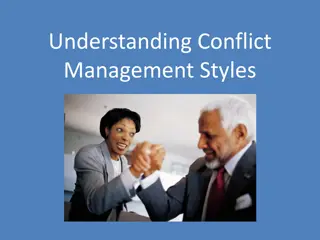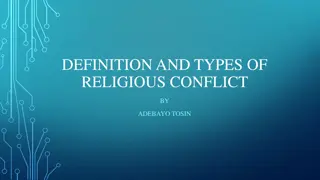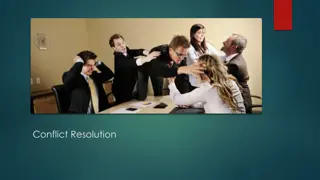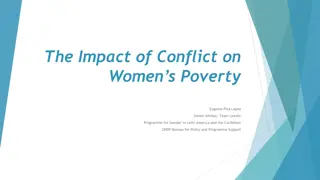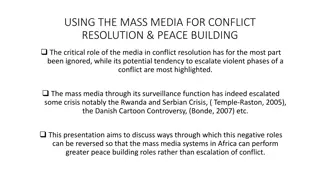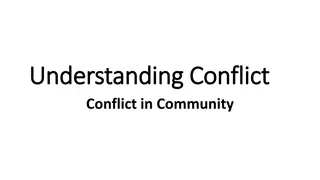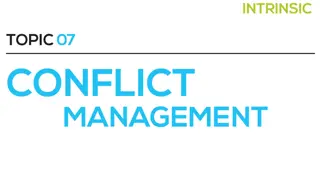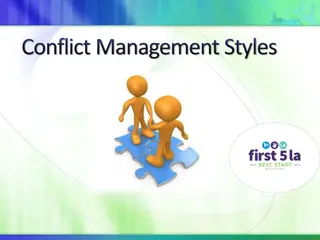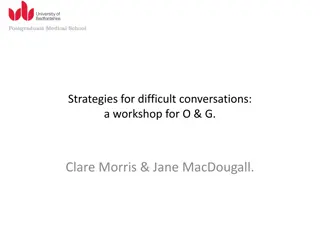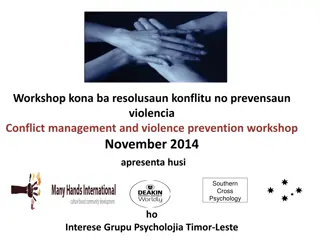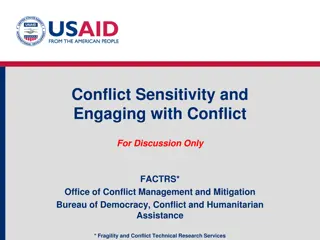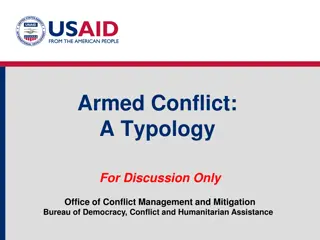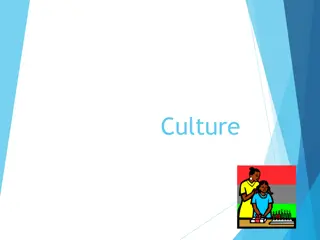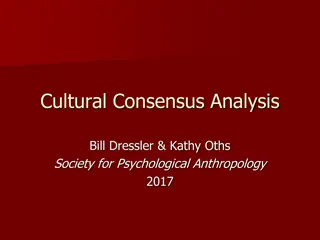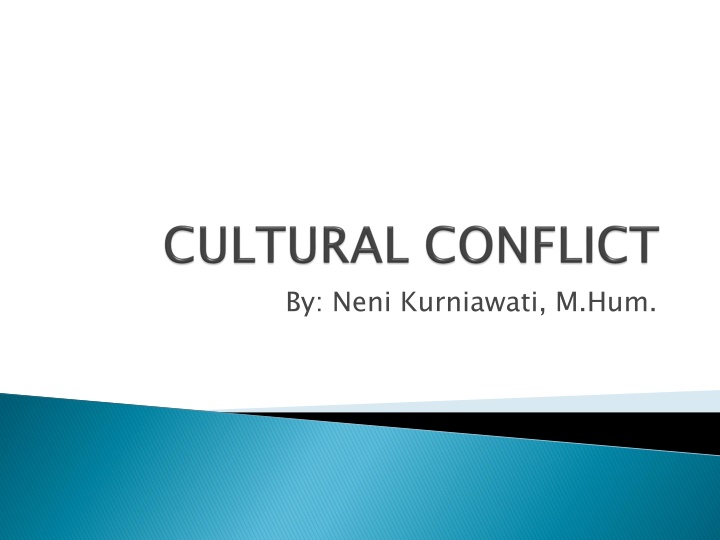
Intercultural Communication and Conflict Theory
Explore the dynamics of intercultural communication and conflict theory, delving into the nuances of cultural interactions, societal structures, and ethical considerations. Gain insights into cultural conflicts, group dynamics, and the impact of differing values on human behavior.
Download Presentation

Please find below an Image/Link to download the presentation.
The content on the website is provided AS IS for your information and personal use only. It may not be sold, licensed, or shared on other websites without obtaining consent from the author. If you encounter any issues during the download, it is possible that the publisher has removed the file from their server.
You are allowed to download the files provided on this website for personal or commercial use, subject to the condition that they are used lawfully. All files are the property of their respective owners.
The content on the website is provided AS IS for your information and personal use only. It may not be sold, licensed, or shared on other websites without obtaining consent from the author.
E N D
Presentation Transcript
Intercultural communication is communication between members of different cultures. Communication process: differing perceptions, attitudes, and interpretations. Culture determine their member s communication style
Humans are by nature social beings, forming groups out of shared interests and needs. The interests and needs of groups interact and produce competition with other groups. Competition between groups is expressed as a political struggle/conflict Conflict occurs when behavioral differences are compounded by cultural differences.
There are two broad categories of conflict theory: 1. Pluralistic (liberal/conservative) conflicts emerge in response to particular situations or events that bring into sharp relief groups competition for social or economic advantage 2. Radical (critical/Marxist) social conflict mainly in terms of struggle between social classes in the context of the structured inequalities of capitalists societies
Marx communist manifesto means of production determine the structure of society Richard Quinney: All conflict is organized around capitalist versus the poor Primary goal of capitalist is maintaining the power The real power and authority is exclusive to the ruling class/group
Thorsten Seilin: Culture conflict is a condition that occurs when the rules and norms of an individual s culture conflict with the role demands of conventional society - Cultural conflict has to do with discrepant norms and values that derive from differing definitions of right and wrong. - Cultural conflict said to bring about criminal behavior
Judging another culture solely by the values and standards of one s culture Concern to language, behavior, customs, and religion Define cultural identity Ethnocentric individual believe that they are better than other individuals
Examples: - European Imperialism - The Mandate of Heaven - Nazi Germany
A thought about specific types of individuals or certain ways of doing things, but that belief may or may not reflect reality. Etymology: solid impression Reflect expectations and beliefs about the characteristics of members of groups perceived as different from one s own. What people think of others. Serve cognitive functions on an interpersonal level and social functions on an intergroup level
common stimuli or socialization The biggest stereotypes: racial. Sexual, and gender remarks Common in various cultural media, e.g. Hollywood movies - Latin Americans: gang members, illegal immigrants, house maid, etc. - Nigger: ? - Chinese: ? - Russian: ?
All white Americans are obese, lazy, dim- witted, friendly, generous, arrogant, etc All Arabs and Muslims are terrorists Italian and French people are the best lovers All Jews are greedy All Asians are good in math, business
Represents the emotional response The affective component of intergroup attitudes People create stereotypes to justify ingroup actions towards outgroup. Example: 1. Justification or ignorance 2. unwillingness to rethink one s attitudes and behavior 3. Preventing some people entering some fields or activities
The behavioral component of prejudicial reactions Refers to actions E.g.: American to Nigger - Chinese to Malay
an exaggerated, patriotism and a belligerent belief in national superiority and glory.


